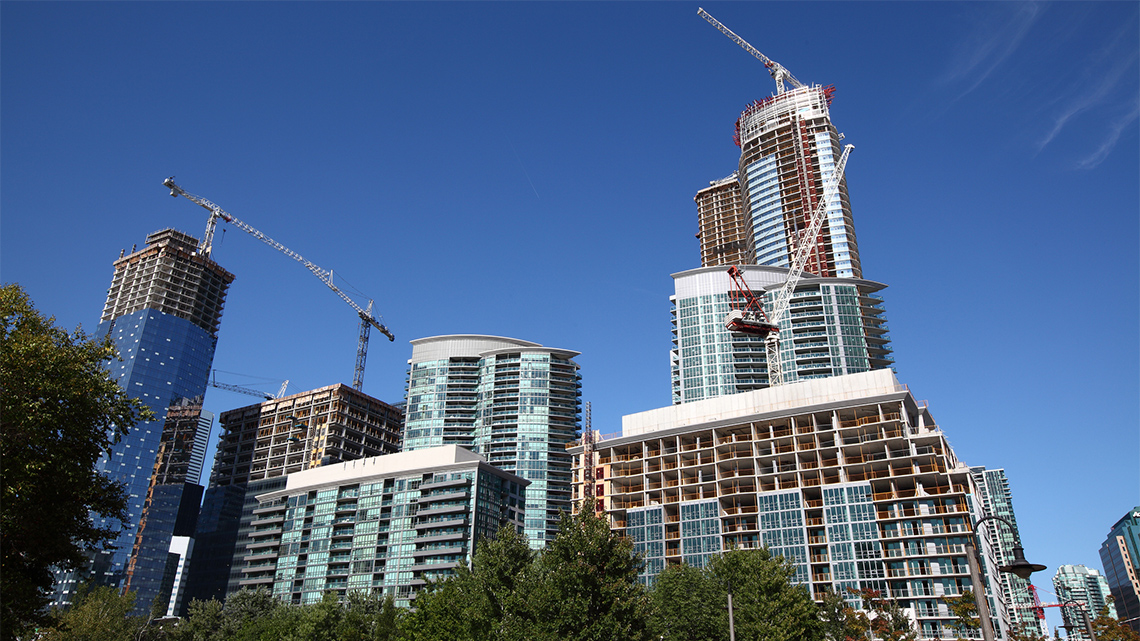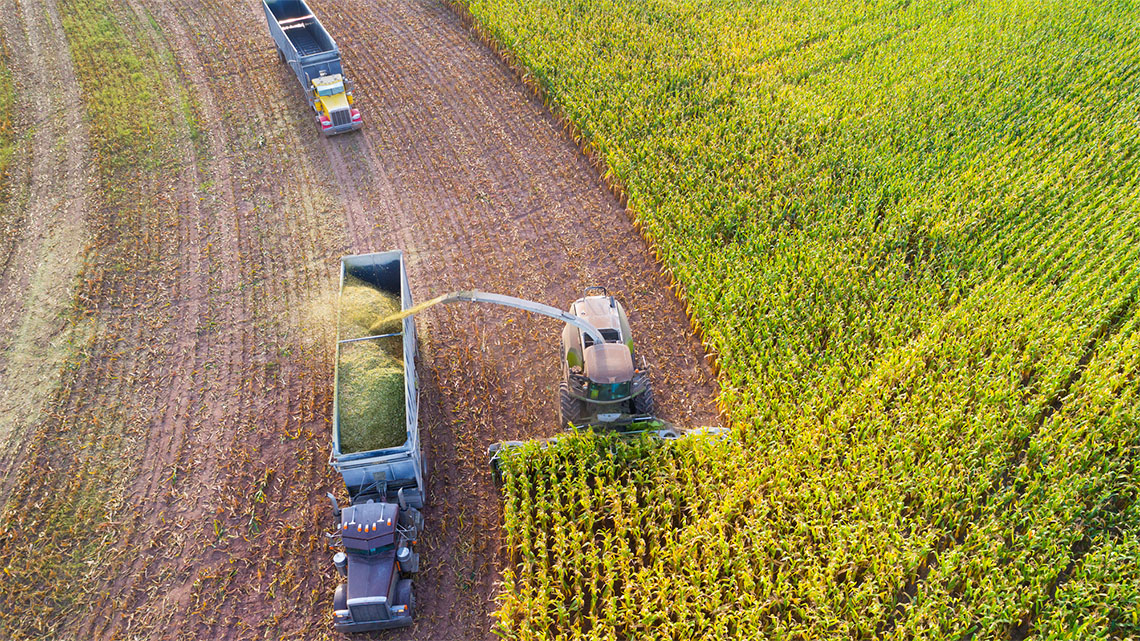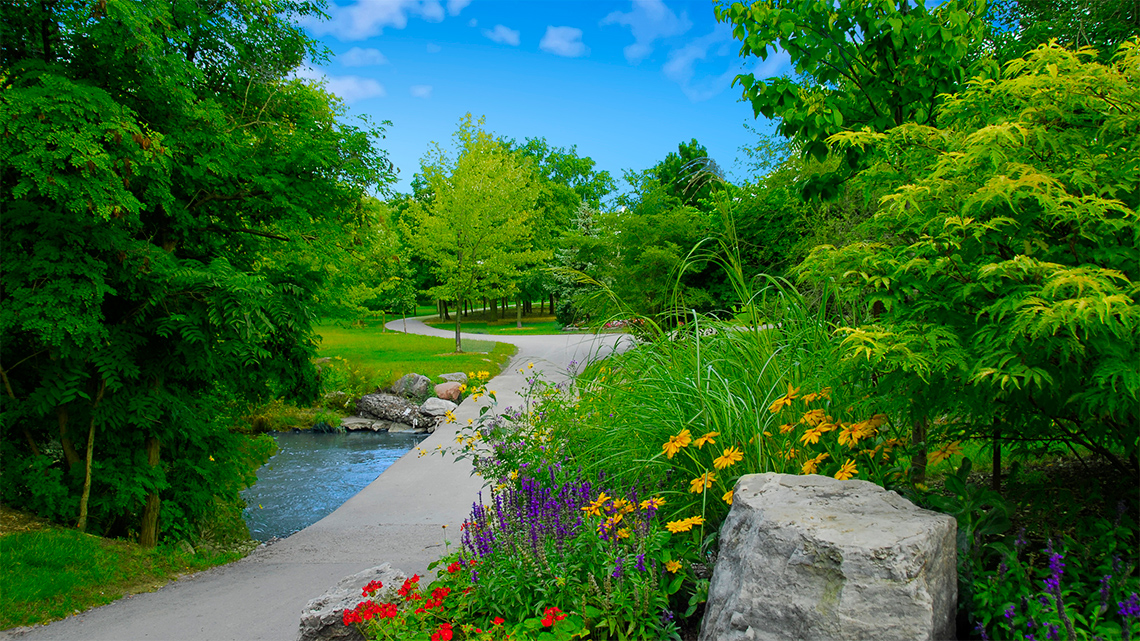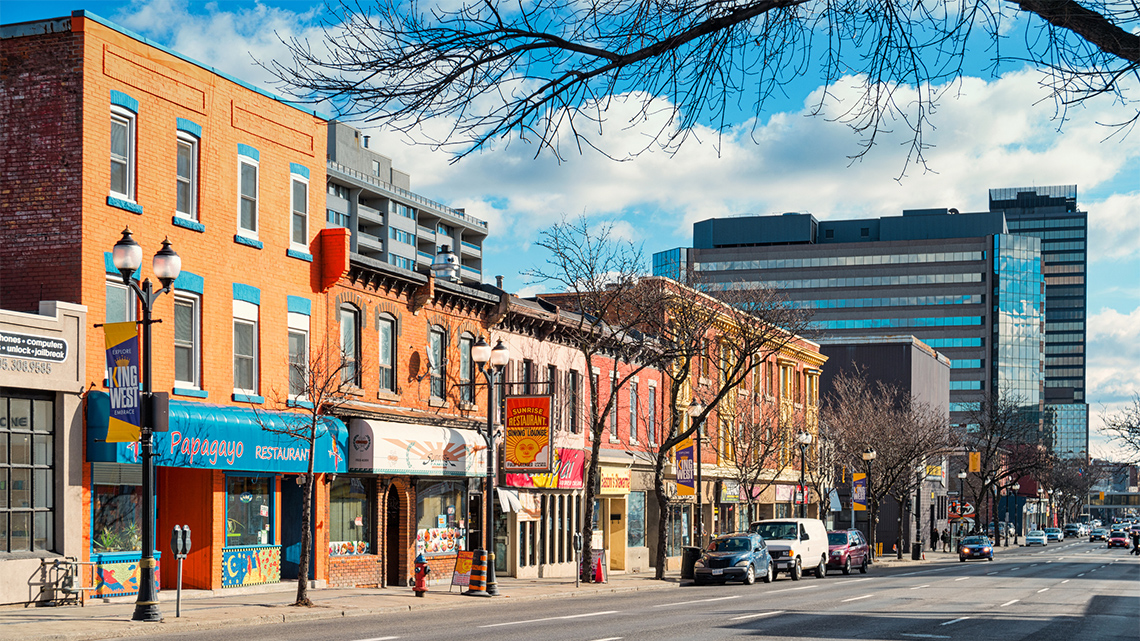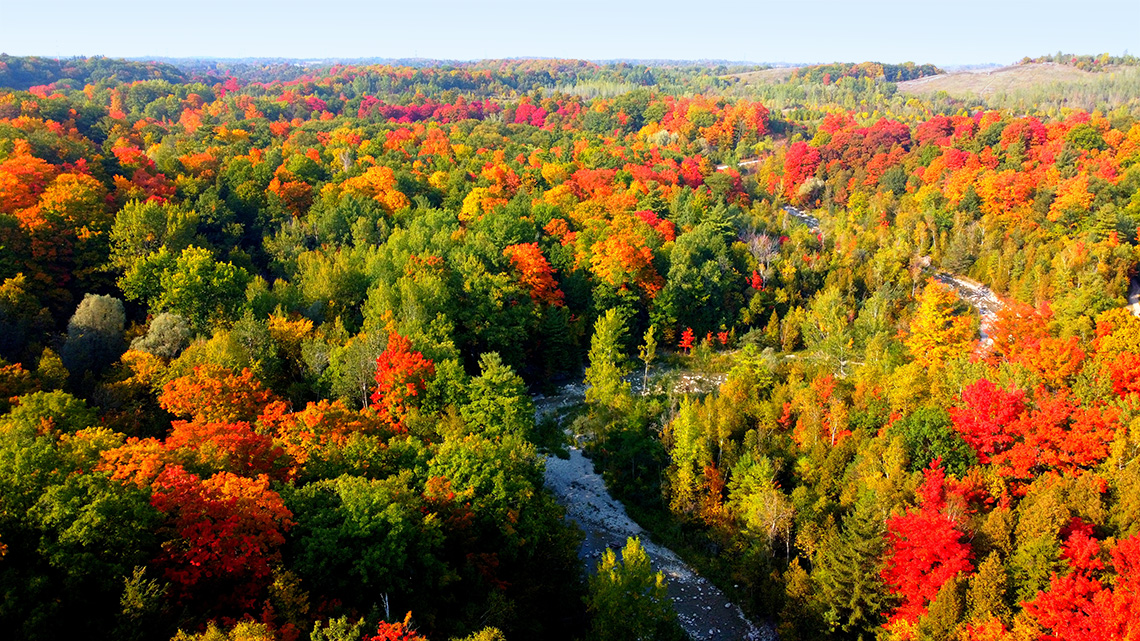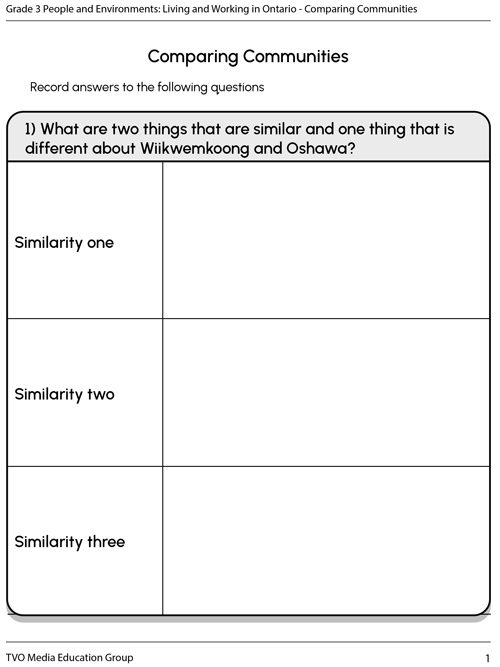Minds On
Land use in communities

In the town of Blossomville, there are different areas that include different types of land use. For each of the areas shown here, describe how the land is being used.
Record your descriptions in a method of your choice.
How do you think the natural environment might be impacted in each area?
Record your ideas in a method of your choice.
Action
Types of land use
Explore the following carousel of images and descriptions that show examples of ways that land is used in communities across Ontario.
Impacts of land use
While using land has many benefits for humans, there will always be impacts on the natural environment.
For example, mining damages land, generates air and water pollution, and the machines used burn fossil fuels that contribute to heating up the Earth.
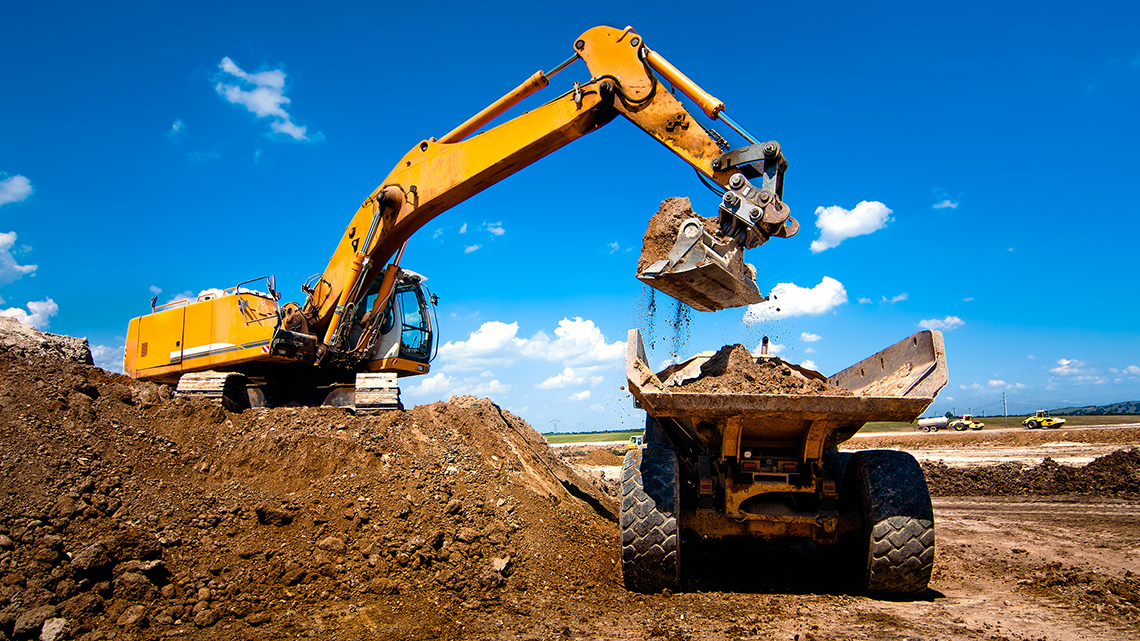
Impacts of land use
Let’s explore the impacts that land use can have on the natural environment.
For each type of land use, select the corresponding impact on the environment.
Let’s explore the impacts that land use can have on the natural environment.
Press the following tabs to find out more.
 Description
Description
A construction worker wearing a hard hat with a reflective jacket holding a tablet. There is another person beside the contraction worker. They are both pointing to an air source which is on the side of a house.
In residential areas of a community, energy is used to power and heat houses and apartment buildings.

In commercial areas with businesses, shops and restaurants, energy is used to light, heat and cool the buildings
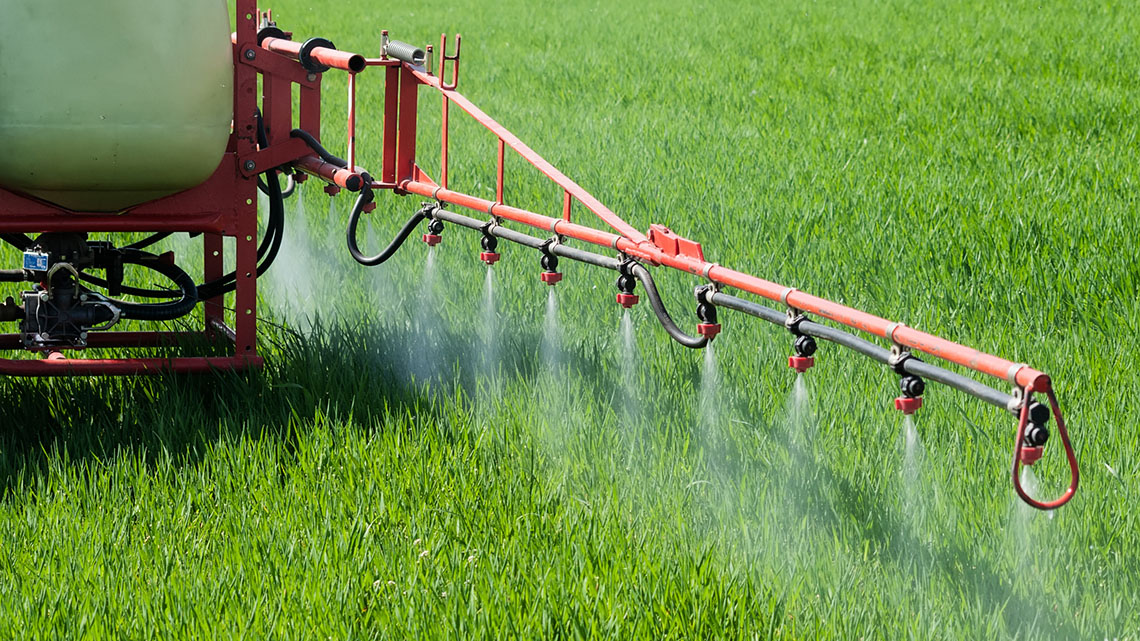
In areas of a community used for agriculture, chemicals can be used to protect crops from diseases and pests.
 In areas of a community used by vehicles, burning of harmful fuels impacts the
environment.
In areas of a community used by vehicles, burning of harmful fuels impacts the
environment.
Brainstorm
Brainstorm
Which types of land use does not appear in this section? Why do you think this is?
Record your ideas in a method of your choice.
Comparing the environmental impacts of communities
The size and population of a community will effect the amount of impact it has on the natural environment.
Explore the following map and image of two communities in Ontario.
Wiikwemkoong is a First Nation community that is Unceded. This means that they have not given up their land. They lead and protect this land as they have for thousands of years.
2 728 people live in this First Nation Community. The primary village has shops, restaurants, schools, medical centres, and pharmacy.
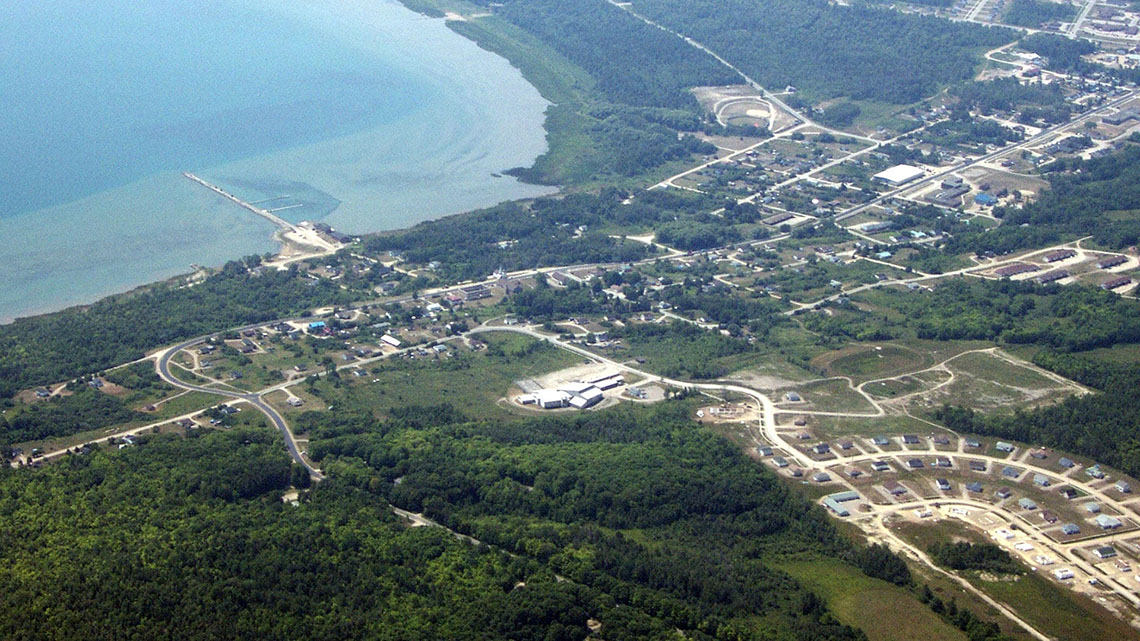
Wiikwemkoong is located on the shoreline on Manitoulin Island, which is known for its unspoiled environment. It is the largest freshwater island in the world. There are over 80 lakes in this area and different communities call this island their home. This includes 6 First Nations communities including Wiikwemkoong.
The city of Oshawa is a large municipality with a population of about 200,000 people.
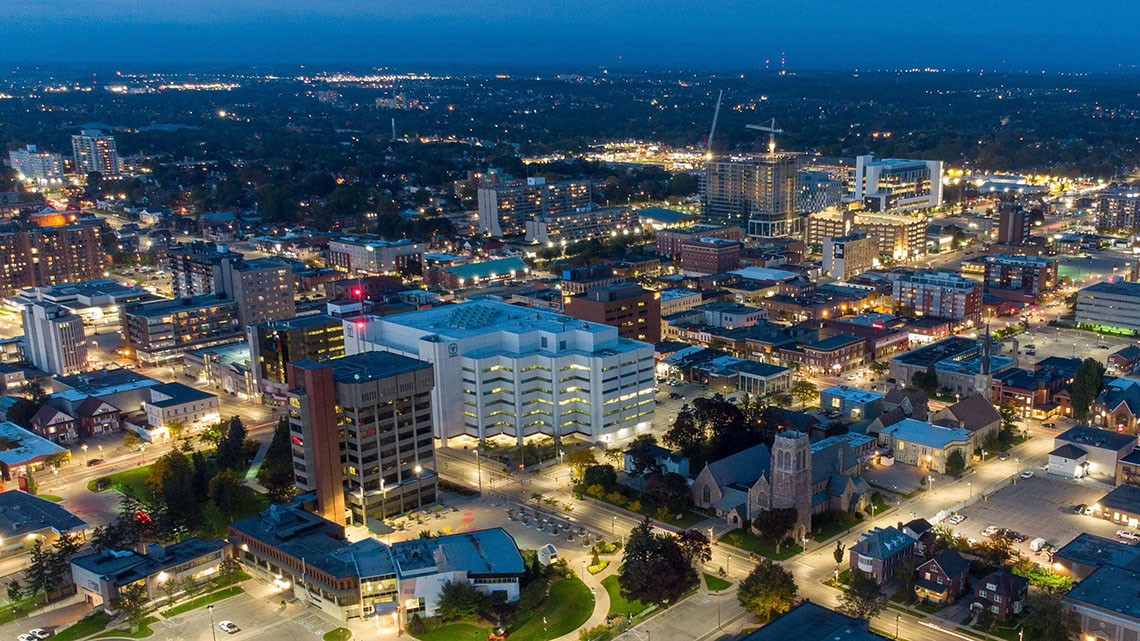
Oshawa is on the shore of Lake Ontario. It has a busy, downtown area, an airport and train station, a University and a College, and many residential areas. There are parks and trails found in different areas of Oshawa. There are many restaurants, a few theatres and a large stadium.
Using the information and images of these two communities, use the activity or a method of your choice to record the following:
- What are two things that are similar and one thing that is different about Wiikwemkoong and Oshawa?
- What are three ways that each community could impact the natural environment?
- Which community has fewer impacts on the natural environment? Why?
Let’s compare the environmental impacts of these two communities.
Complete Comparing Communities activity in your notebook or using the following fillable and printable document. You can also use another method of your choice.
Considering your community
 Description
Description
Title: Comparing Communities. An image of two Ontario communities side-by-side. On the left is the Town of Manitowaning. There is a small main street with a general store, a farm growing plants, a few small homes, people riding bikes, and one car driving. It is surrounded by forest. On the right is the city of Oshawa. There is a large main street, recreation facilities, some apartments, large groups of houses, industrial factories, and lots of cars. It is surrounded by fields and a highway.
Now that you have explored two different communities in Ontario, it is time to think about your own community and the way the land is used.
Using a method of your choice, create a map like these maps shown of different sections of your community and include the types of land use found in each section.
You may choose to add
- pictures or symbols to show homes, businesses, and community spaces
- colour to represent different land uses on your map (e.g., parks)
- compass points (i.e., N, S, E, W) to show direction
- labels with different font sizes and styles to show different types of land use
Once you have finished your map, answer the following questions:
For each area that you have mapped, what is one possible environmental impact of this area?
Record your answers in a method of your choice.
Consolidation
Reducing our environmental impacts
Let’s explore a video in which we learn about how communities around the world are reducing the impact of land use on the natural environment.
- How are communities around the world trying to reduce the impact of land use on the natural environment?

Record your response using a method of your choice.
We are now going to think of ways that we can reduce the negative impacts of land use on the natural environment in our own communities.
Complete Reducing Our Environmental Impacts activity in your notebook or using the following fillable and printable document. You can also use another method of your choice.
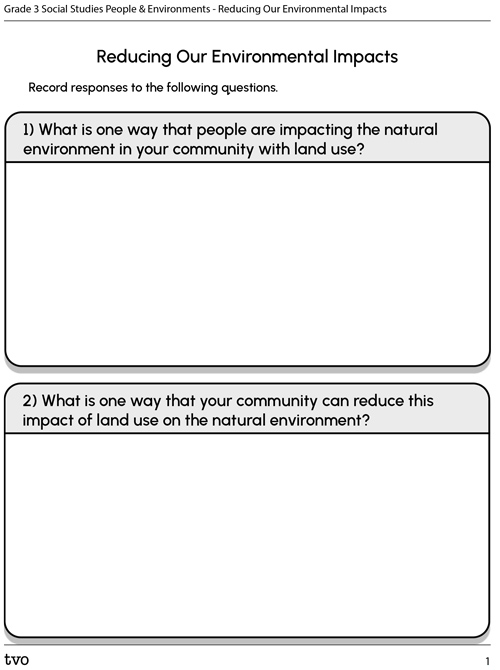
Press the Activity button to access the Reducing Our Environmental Impacts.
Activity(Opens in a new tab)
Reflection
How do you feel about what you have learned in this activity? Which of the next four sentences best matches how you are feeling about your learning? Press the button that is beside this sentence.
I feel...
Now, record your ideas about your feelings using a voice recorder, speech-to-text, or writing tool.
